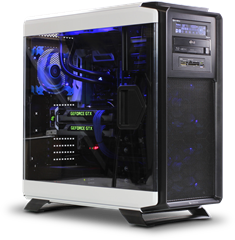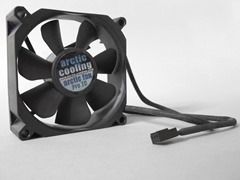 Heat and computers do not get along. A cool computer runs more smoothly and efficiently. A computer that can not rid itself of heat properly can actually underperform and over a long period of time it can result in damage to the computer. This can significantly shorten the lifespan of the computer. This is the third article in a series of articles on how to keep a computer cool. Please feel free to go back to the original article for links to other tips and ideas to keep your computer cool.
Heat and computers do not get along. A cool computer runs more smoothly and efficiently. A computer that can not rid itself of heat properly can actually underperform and over a long period of time it can result in damage to the computer. This can significantly shorten the lifespan of the computer. This is the third article in a series of articles on how to keep a computer cool. Please feel free to go back to the original article for links to other tips and ideas to keep your computer cool.
In this article we will be talking about the importance of fans in your computer and the impact that overclocking a processor can have on your PC regarding heat. Hopefully, you will get some valuable information that you can apply to your PC to help keep it cool and running efficiently.
Use Fans to Help Keep Cool
The CPU inside your computer puts out a tremendous amount of heat. It is also one of the most important components of a PC. The processor is the most likely component in your PC to overheat. One area where you can help reduce temperature in your computer is by upgrading the CPU fan. If you are operating with the original fan then chances are you are using a run of the mill fan. Therefore, you probably have a lot of potential to upgrade and get a much better fan.
a PC. The processor is the most likely component in your PC to overheat. One area where you can help reduce temperature in your computer is by upgrading the CPU fan. If you are operating with the original fan then chances are you are using a run of the mill fan. Therefore, you probably have a lot of potential to upgrade and get a much better fan.
You can shop for a CPU fan on Amazon to get a much better one than the one you have. You will want to make sure the fan you choose is compatible with the socket and processor that you have in your system currently.
Another area you can improve is to install a case fan if your case supports it. These typically install to the front of back of a case on the inside. They will help move warm air out of the PC. You can double your efforts by installing two fans. One of the fans can bring in cool air and the other one can dissipate hot air from the inside.
You can also buy case fans on Amazon and these are pretty easy for anyone to install.
Stop Overclocking Your Processor
Overclocking is the process of pushing a CPU past its published limits. This results in even more temperature being dealt with inside your computer. If you do not have proper cooling in the case then you can actually damage components inside the computer due to overheating.
Therefore, it goes without saying that you should strongly consider overclocking your processor unless you have the proper fans, heat sinks and other elements to keep the PC cool. If you do not know what you are doing, you can cause a great deal of damage to your PC.
These are just two things you can do to prevent overheating in you computer. Be sure to check out the other articles in the series to learn how you can keep your computer running cool.